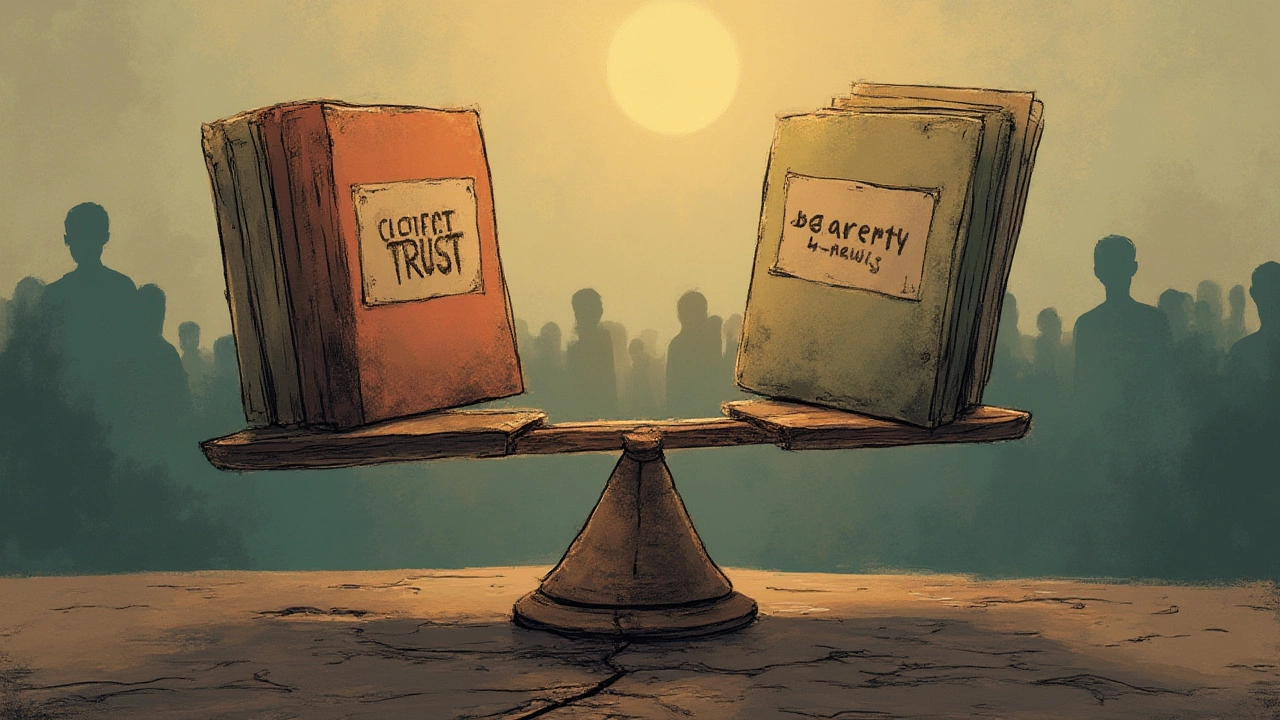Ever hired a lawyer and felt let down when things went sideways? Turns out, there's a whole world behind this problem—it's not just bad luck or a rough day at the office. When a lawyer messes up, there are actual legal terms, procedures, and consequences that kick into gear. Some people call it 'incompetence,' but that barely scratches the surface. In the legal game, the stakes are high, and a slip-up can mean losing your money, your rights, your freedom, or something even bigger.
When Lawyers Cross the Line: Defining Legal Negligence and Misconduct
If you’re wondering what you call it when a lawyer simply doesn’t do their job, here are a few key terms. The big one is legal negligence. This is when a lawyer fails to provide the skill or care that a reasonable lawyer would in a similar situation. Legal negligence is basically the lawyer’s version of medical malpractice. Imagine a lawyer forgetting a key deadline or misfiling court papers that cost you your case. That’s not just a mistake—that’s legal negligence.
Another serious term is 'professional misconduct.' This covers everything from breaking rules set by the law society, to acting against your interests. That could be taking your money and disappearing, having a conflict of interest, being dishonest, or worse. Not every lawyer mistake rises to the level of misconduct, but when a lawyer intentionally acts in ways that hurt a client or ignore clear duties, that's misconduct on display.
There's legal malpractice, too. This is when a lawyer's bad performance directly causes you damage—like missing deadlines, failing to investigate, or botching legal advice. The kicker is, not every lost case means your lawyer was negligent. Courts know that sometimes, even if you’ve got the best lawyer in Wellington, things just don’t go your way in court. But if your lawyer broke clear rules or showed a shocking lack of effort or skill—now that’s malpractice territory.
Here’s a snapshot just to compare these terms:
| Term | What it Means | Example |
|---|---|---|
| Legal Negligence | Failure to use reasonable care or skill | Missing court deadlines |
| Professional Misconduct | Breaking rules of professional conduct | Taking client funds for personal use |
| Legal Malpractice | Negligence causing identifiable harm | Giving wrong legal advice leading to damages |
So next time you see the word 'malpractice' in a headline or you hear someone ranting about their lawyer, you’ll know the difference!
How Legal Negligence Impacts Real People
The consequences for clients when lawyers mess up can be brutal. It’s not just about losing a case—people have lost homes, custody of children, huge sums of money, or their entire businesses because of a lawyer’s incompetence. In fact, a 2023 survey by the New Zealand Law Society showed that nearly 7% of all complaints filed were related to missed deadlines or clear inaction—things that really should be basic stuff for any lawyer. If your lawyer sits on your file and lets a case collapse, that’s not bad luck—that’s a problem that could haunt you for years.
Sometimes, it’s easy to spot when your lawyer isn’t doing their job. Maybe they rarely return calls or emails. Maybe they keep asking you for information they should already have. But legal negligence is often sneakier. For example, you might not even know that a deadline has passed, or that your lawyer failed to submit a crucial document, until you get a letter from the court saying you lost. By then, reversing the damage can be hard or even impossible.
This isn’t just a problem in New Zealand. In the UK, the Solicitors Regulation Authority reported in 2023 that about 15% of all legal complaints involved allegations of poor communication or missed deadlines. In the USA, the American Bar Association estimates that over 1 in 10 malpractice claims involve straightforward negligence, like failing to act or missing court appearances.
If you ever feel like your lawyer is dropping the ball, it’s not paranoia. Trust your gut, but back it up by checking the details: ask for regular updates, demand copies of court filings, and don’t just let things slide if your lawyer goes quiet.

The Steps People Can Take: Dealing with an Incompetent Lawyer
If you think your lawyer didn’t do their job, you actually have quite a few options. First, document everything. Write down dates, conversations, actions (or inaction), and keep emails and letters. If your case suffers because your lawyer failed to do their job, here are the basic steps:
- Raise your concerns directly with the lawyer. Sometimes, honest mistakes happen, and lawyers should be willing to explain what went wrong.
- If the response isn’t satisfying, go straight to their law firm or supervisor. Law firms usually handle complaints internally first.
- Make a formal complaint to the local Law Society. In New Zealand, that’s the New Zealand Law Society—it oversees all lawyers and handles complaints about conduct and negligence.
- If you suffered financial loss, you might have grounds to sue for legal malpractice. This can get complicated and costly, so get good advice from a different lawyer (yeah, you might need a better lawyer to sort out your complaint about your current one—awkward, right?).
- Ask for your case file if you want to switch lawyers. Lawyers are required to hand over your documents if you move on—even if there’s a dispute.
Just a heads up: Complaints don’t always get you money, but they do keep lawyers honest, and your action can help protect others in the future.
Many people worry that making a complaint will make things worse for their case, but in New Zealand, lawyers are forbidden from punishing clients for making a complaint. If you’re hesitant, talk things over confidentially with the Law Society first—they handle thousands of queries every year, most of them from regular people.
If you’ve paid money and your lawyer did nothing useful, you might be able to get a refund, too. The Law Society can sometimes order lawyers to return fees if they clearly didn’t earn them. In rare cases, they can strike lawyers off the register, which means they can’t practice law in the country anymore.
Spotting Red Flags and Protecting Yourself
Not every lawyer who takes a long lunch is guilty of legal negligence, but there are red flags you should know about. Clients should pay attention if their lawyer:
- Frequently misses appointments or calls
- Doesn’t send updates or paperwork
- Is unclear about fees and charges
- Makes promises that seem too good to be true (like “I guarantee a win”)
- Refuses to give you copies of important documents
If anything feels off, ask for clarification. Honest lawyers won’t mind explaining what’s happening with your case or why something is delayed. Don’t be shy—this is your future, your money, your peace of mind.
Here are a few tips for picking the right lawyer and making sure they do their job:
- Always research a lawyer’s history. Check online reviews and ask around. The New Zealand Law Society’s website lists any disciplinary findings.
- Ask how often they handle similar cases. If you need help with a construction dispute, don’t hire someone who mostly handles divorces.
- Insist on regular updates—these days, even a quick email every couple of weeks is normal.
- Keep your own records. Print out emails, keep a simple diary of meetings and deadlines, and don’t throw out any letters.
- Don’t be afraid to question your bill. Lawyers should explain their fees clearly and warn you before costs run up.
If you’re ever stuck, the Citizens Advice Bureau in Wellington and around New Zealand can point you in the right direction for free. And don’t forget—most legal problems can be avoided with good communication early on. If you speak up the moment something doesn’t feel right, you make it much easier to fix things before it spirals.
Legal negligence isn’t some far-off concept you only see on news headlines. It’s something real people face, and there are clear tools and rights to help you if it ever happens to you. Stay alert, ask questions, and never settle for a lawyer who gives you less than their best.
